Detailed introduction of Euro-Mediterranean University:
Introduction
Euro-Mediterranean University (EMUNI) is an international university located in Piran, Slovenia. It is one of the priority projects of the Mediterranean Union, focusing on Euro-Mediterranean research and promoting cooperation among countries in the region.
Overview
Student composition: Students come from more than 60 countries with diverse cultural backgrounds.
Course settings: Provides graduate-level learning programs, including master's programs, summer schools, and professional training courses, covering Euro-Mediterranean research, sustainable blue growth, cross-cultural business communication and other fields.
History and establishment time
Founded in 2008.
School strength
Academic certification: Accredited by the Slovenian Higher Education Quality Assurance Agency (SQAA).
Faculty strength: The specific number of teachers is not specified, but judging from the professionalism of its courses and international cooperation, the faculty has rich teaching and research experience and can provide students with high-quality education and guidance.
International Cooperation: It is a member of several international academic networks and has established partnerships with more than 120 universities around the world. It actively carries out student and teacher exchange programs, dual degree programs, etc., providing students with broad international exchange opportunities.
Institutional Nature
Private university.
Educational Philosophy
Promote and strengthen cooperation and mutual understanding between Euro-Mediterranean countries through education, research and cultural exchanges, and strive to become a leading institution in the Euro-Mediterranean region to promote sustainable development, cross-cultural dialogue and knowledge transfer.
Key Laboratories and Disciplines
Key Disciplines: Euro-Mediterranean research, sustainable development, cross-cultural communication, environmental science and management, tourism innovation, oceanography and other disciplines are its key development areas. These disciplines are closely centered on the characteristics and needs of the Euro-Mediterranean region and have strong regional characteristics and practical significance.
Key Laboratories: The university has several research centers that focus on research on relevant issues in the Euro-Mediterranean region, such as sustainable development, cross-cultural dialogue and innovation, but the specific names and detailed information of the key laboratories are not clear.
Departments
The university has several departments covering the following subject areas :
Department of Criminal Justice and Security Studies: including criminal law, welfare and protection services, etc.
Department of Mediterranean Environmental Protection: covering environmental management, environmental research, Mediterranean studies, etc.
Department of Euro-Mediterranean Policy: including European studies, Mediterranean studies, etc.
Department of Intercultural Business Communication: involving business administration, business and trade, communication, etc.
Department of Landscape, Territory and Heritage: including heritage protection, landscape architecture, etc.
Department of Management, Development Studies and Tourism: including development studies, European studies, management, marketing, Mediterranean studies, tourism, etc.
Department of Oceanography: covering marine science and oceanography, water science, etc.
Department of Immigration and Intercultural Relations: including cultural studies, demography and population, etc.
Department of Public Administration: including European studies, Mediterranean studies, public administration, etc.
Department of Transportation and Highway Engineering: including road engineering, traffic engineering, etc.
Ranking
Ranked 9371st among 14,131 institutions worldwide, 2224th among 2785 institutions in Europe, and 10th among 32 institutions in Slovenia.
Fees
Master's programs: Annual tuition fees for local students are around 6,000 euros, and tuition fees for international students vary according to majors, such as cross-cultural business communication, tourism innovation, environmental science and management, etc. The annual tuition fees are about 5,500 US dollars.
Scholarships: Scholarships are provided for some outstanding students and students from specific countries.
Campus environment
Location: The main campus is located in Piran, Slovenia, a picturesque coastal town with a population of about 4,000. people, with a rich history and cultural heritage.
Campus facilities: The campus has modern classrooms, research laboratories, libraries and student dormitories, equipped with advanced equipment to support academic and extracurricular activities.
Campus life: The school provides students with a variety of cultural, social and entertainment activities. Students can participate in local community activities, explore Piran's historical sites, participate in sports and outdoor activities, and enjoy a vibrant campus life.
-
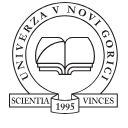
University of Nova Gorica
-
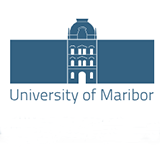
University of Maribor
-

School of Advanced Social Studies
-
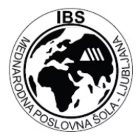
IBS International Business School Ljubljana
-

GEA College
-

International School for Social and Business Studies
-

University of Novo mesto
-
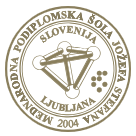
Jozef Stefan International Postgraduate School
-
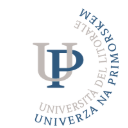
University of Primorska
-
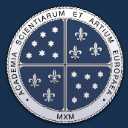
Alma Mater Europaea
-

Mesoamerican University
-

Istmo University
-

Mariano Galvez University of Guatemala
-

Regional University of Guatemala
-

Galileo University
-

Francisco Marroquín University
-

Rafael Landívar University
-

University of the Valley of Guatemala
-

University of San Carlos of Guatemala
-

Technological Institute of Tlaxcala Plateau
-

Golfo University
-

Technological University of South Sonora
-

Technological University of Huejotzingo
-

Tizimín Institute of Technology
-

Chilpancingo Institute of Technology

